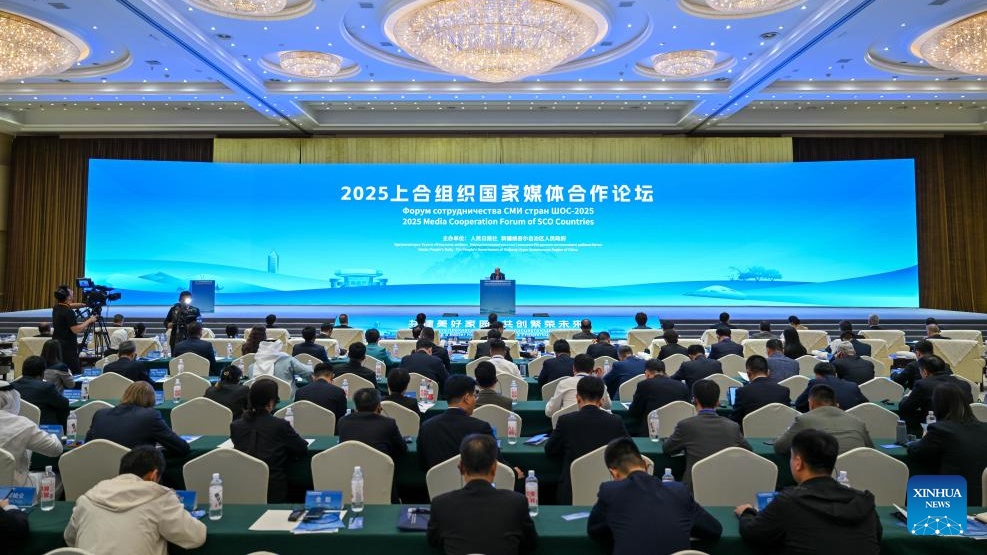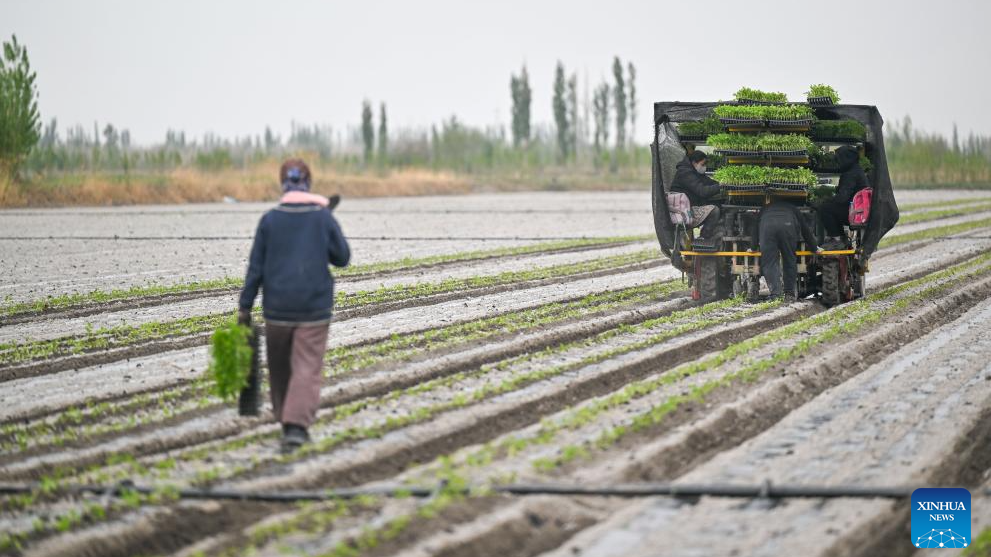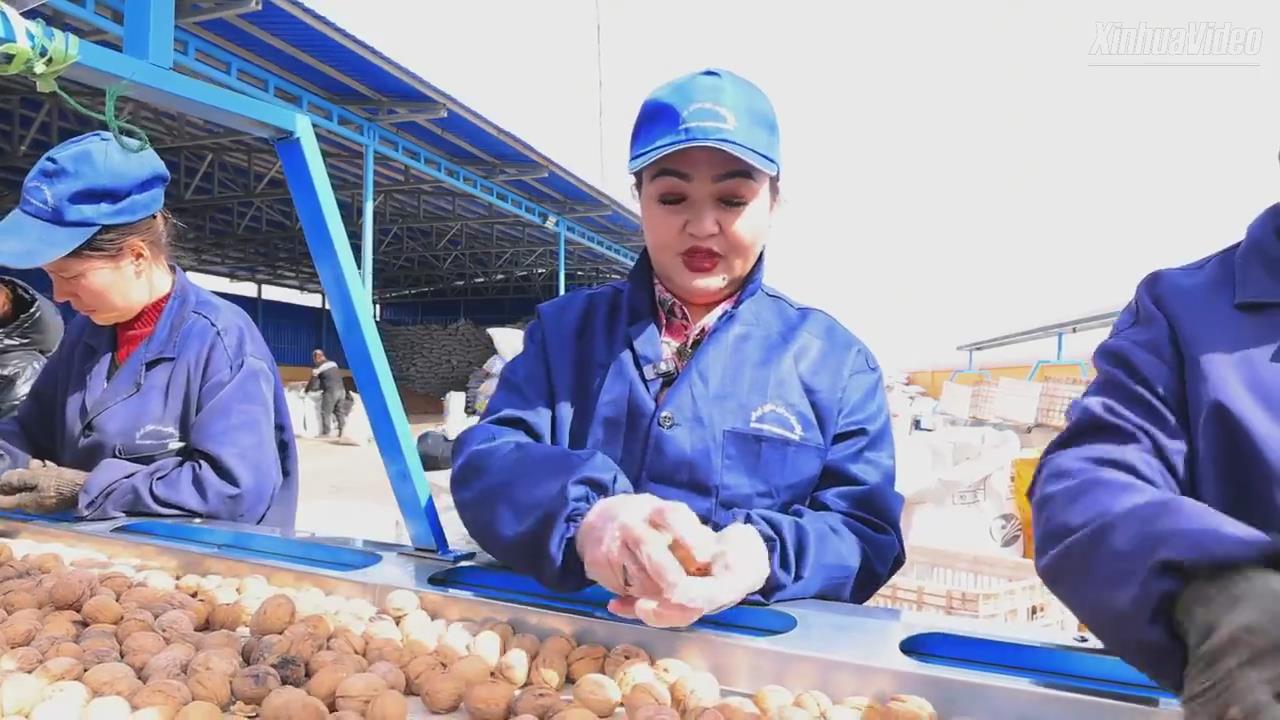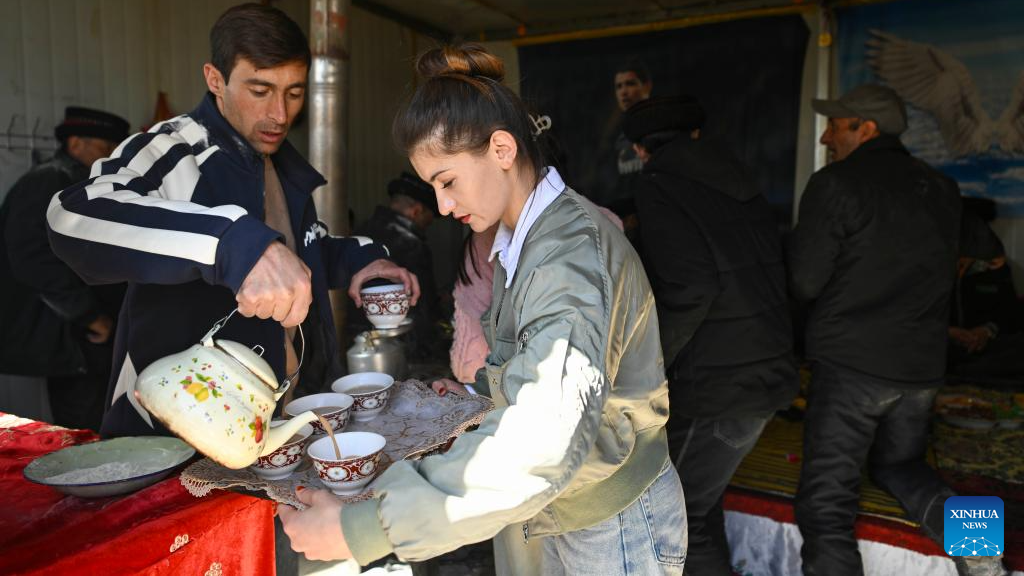The Xinjiang Uygur Autonomous Region is one of China's most popular tourism destinations of the summer. CGTN is airing a three-part series that explores how tourism is evolving in the region. In this episode, our reporter Guo Tianqi takes us to south Xinjiang.
"Experience authentic Uygur culture" is a travel motto in southern Xinjiang.
In Kashi prefecture, near Taklimakan Desert, stands an important crossing point on the ancient Silk Road. Yingjisha county is home to thousands of years of traditional handicrafts, fully preserved.
"We are from Changsha. We wanted to see something original and distinctive, and we picked this place following the guides on social media."
For two-thousand years, Uygur pottery has been handmade and glazed with mineral pigments.
The special patterns and shapes have been passed down through the generations, and show the cultural integration of different ethnic groups in Xinjiang.
The tradition attracts tourists as well as school summer camps.
JIN CAN Student from Shanghai "I'm going to study pottery making here for five days. I came to Xinjiang to study at the summer camp for two consecutive years. I think these experiences can give us a deeper understanding into local customs."
ABDUL SATTAR Owner of Pottery Shop "I worked in other provinces for two years, but now I've chosen to come back to my hometown to open my own pottery shop because our village is developing very fast. Tourists come here to experience pottery making and buy our products. My business is very good."
While rich intangible cultural heritage draws tourists, the village also needs development to sustain economic benefits. Under the Xinjiang support policy, coastal province Shandong has partnered with Yingjisha county to design scenic spots and build much-needed infrastructure.
WANG QING Official, Aid Xinjiang Team (Shandong) "We've invested over 50 million RMB to protect and develop intangible cultural heritage in this county, including museums, artist training, and creating in-depth tourist routes."
Nearby is a nationally famous knife village, renowned for its excellence spanning centuries.
GUO TIANQI Yingjisha County, Xinjiang "Knife-forging expertise in Yingjisha County has a history of more than 400 years. The most important feature is the handle, in Uygur design patterns. For tourists, these are must-buy souvenirs. This knife, for example, can sell for up to 1,000 US dollars."
Official data shows about 550,000 knives are sold here every year. Last year, sales exceeded 150-million yuan, or 21-million US dollars.
"The workmanship of these handmade knives is amazing. It's completely different from what I'd imagined. It's really worth visiting.”
With the arrival of more and more travel enthusiasts, the demand for tourist products is growing increasingly diversified. Through a combination of intangible cultural heritage and travel, livelihoods are being raised.
Guo Tianqi, CGTN, Xinjiang Uygur Autonomous Region.

















.png)









